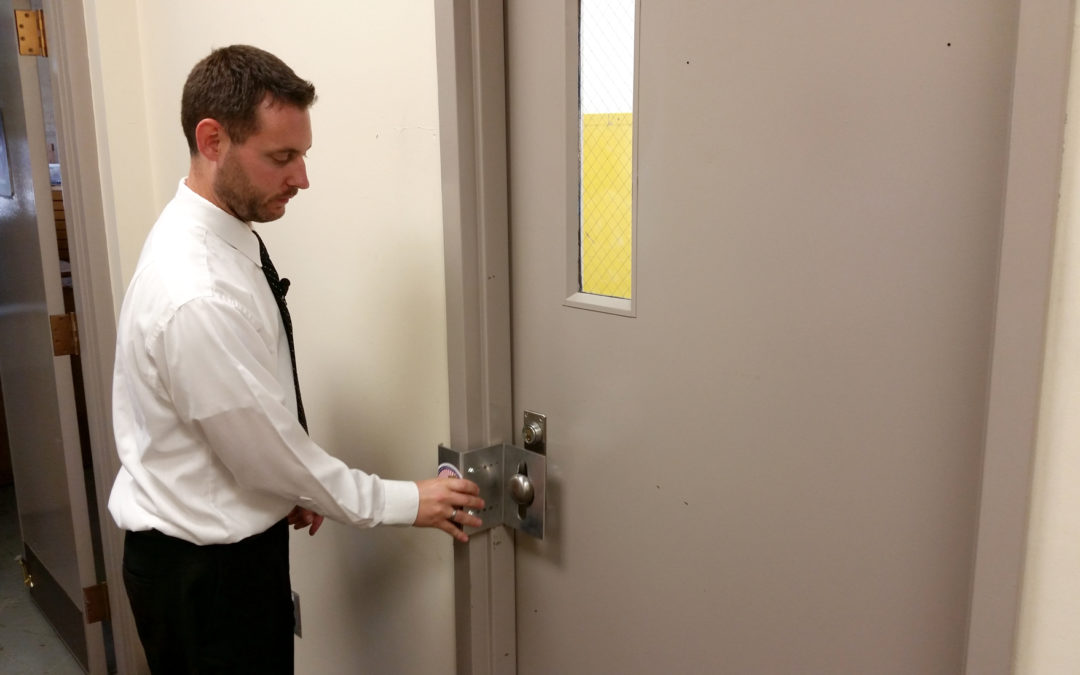Experiencing an office lockout can be a stressful situation. However, having a safe room with alternative access can significantly mitigate the inconvenience. Understanding how to establish safe room access in office lockouts is crucial for maintaining office security and ensuring business continuity. This article will explore the importance of safe room access, strategies to implement it, and tips to avoid future lockouts.

Understanding the Importance of a Safe Room
A safe room is a secure location within an office where employees can retreat during emergencies. It is fortified to resist forced entry and provides safety until help arrives. In the context of office lockouts, a safe room acts as an alternative access point, ensuring that essential operations can continue without interruption.
Features of an Effective Safe Room
An effective safe room should have reinforced doors, soundproof walls, communication tools, and essential supplies. It should be strategically located to provide easy access during emergencies. The presence of multiple access points within the office can prevent complete lockouts and enhance security.
Strategies for Implementing Safe Room Access
Utilizing Advanced Locking Systems
Incorporating advanced locking systems is crucial for safe room access. Biometric locks, keycard systems, and smart locks offer enhanced security and flexibility. These systems can be programmed to allow specific individuals access during lockouts, ensuring that only authorized personnel can enter the safe room.
Establishing Alternative Access Points
Having multiple access points to the safe room is essential. This can include hidden doors or tunnel systems that provide discreet entry. These access points ensure that even if the primary door is compromised, there is still a way to enter the safe room.
Training Employees on Emergency Protocols
Regularly training employees on emergency protocols is vital. They should know how to access the safe room, use communication tools, and follow lockdown procedures. This training ensures that employees remain calm and organized during a lockout, maximizing the effectiveness of the safe room.
Conducting Regular Drills
Conducting regular drills helps employees practice emergency protocols in a controlled environment. These drills should simulate various scenarios, including lockouts, to ensure that all employees are prepared for any situation. Feedback from these drills can be used to improve emergency plans and enhance safe room access.
Preventing Future Office Lockouts
Implementing Routine Maintenance
Regular maintenance of locks and security systems can prevent lockouts. Ensuring that all locks are functional and up to date reduces the risk of unexpected failures. Hiring professional locksmiths for routine check-ups is a proactive approach to maintaining office security.
Using Secure Backup Systems
Having secure backup systems in place is essential. This includes backup keys, duplicate access cards, and digital access codes. These backups should be stored in a secure location accessible during emergencies, reducing the likelihood of total lockouts.
Additional Resources
For more information on avoiding lockouts during office renovations, visit this useful guide. Additionally, you can learn about choosing the right lock for your business by checking out this external resource.

FAQ Section
What materials are best for a safe room?
Reinforced steel and concrete are ideal for constructing a safe room. These materials provide excellent resistance against forced entry and natural disasters.
How often should emergency drills be conducted?
Emergency drills should be conducted at least twice a year. Frequent drills ensure that employees remain familiar with protocols and can respond effectively during real emergencies.
What are the costs associated with implementing a safe room?
The cost of implementing a safe room varies based on the materials used, the complexity of access systems, and the size of the room. Consulting with security experts can provide a detailed estimate based on specific requirements.
This article contains affiliate links. We may earn a commission at no extra cost to you.





